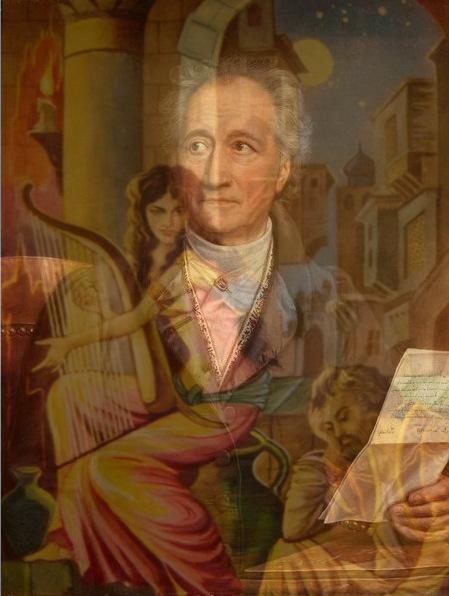Spring 2023 - WL 201 D100
East/West Encounters (3)
Class Number: 7439
Delivery Method: In Person
Overview
-
Course Times + Location:
Jan 4 – Apr 11, 2023: Mon, 2:30–5:20 p.m.
Burnaby
-
Instructor:
Azadeh Yamini-Hamedani
aya23@sfu.ca
Description
CALENDAR DESCRIPTION:
Explores the relationship between Eastern and Western narratives. The focus may include the mutual influence of Eastern and Western cultural traditions and modernities, the construction of the 'East' in the West and of the 'West' in the East, theories of Orientalism and Occidentalism, and forms of East/West syncretism. This course may be repeated once for credit when different topics are offered. Breadth-Humanities.
COURSE DETAILS:

WL 201: East/West Encounters
World Literature- A Love Story
How did world literature as a concept emerge? This course delves into the thoughts and works of the man who coined the term Weltliteratur- Johann Wolfgang von Goethe.
By coining the term, Goethe hoped to underline the intellectual exchange that takes shape between cultures through literature. We will read Goethe’s writings on world literature, translation, and intercultural encounter, alongside his most famous works- The Sufferings of Young Werther, Faust and the West-East Divan.
The West-East Divan emerged out of Goethe’s own intercultural encounter with the Persian poet Hafez, whose impact left a decade-long mark on Goethe’s works. By reading Hafez alongside Goethe we will explore the ways in which the former served as a catalyst for Goethe’s creativity and inspiration, and thoughts on world literature, translation, and cultural exchange.
COURSE-LEVEL EDUCATIONAL GOALS:
- recognizing ambiguity
- learning how to argue your point
- writing a thesis
- writing a thesis paper
Grading
- Midterm Paper (1st and 2nd drafts): 30%
- Final Paper (1st and 2nd drafts) 40%
- Creative Project 10%
- Participation 10%
- Presentation 10%
Materials
REQUIRED READING:
Goethe, Johann Wolfgang von, and Stanely Corngold. The Sufferings of Young Werther. New York: W.W. Norton, 2012.
ISBN: 978-0393343571
Goethe, Johann Wolfgang von, and Walter Kaufmann. Faust. Garden City, NY: Anchor, 1963.
ISBN: 978-0385031141
Goethe, Johann Wolfgang von, Martin Bidney, and Peter Anton von Armin. West-East Divan: The Poems with “Notes and Essays”: Goethe’s Intercultural Dialogues. Albany, NY: Global Academic Publishings, 2010.
ISBN: 978-1586842840
Hafiz, and A.J. Arberry. Fifty Poems of Hafiz. Reprint. Routhledge, 2013
ISBN: 978-0700702756
Hafiz, and Gertrude Lowthian Bell. The Hafez Poems of Gertrude Bell: With the Original Persian on the Facing Page. Bethesda: IBEX, 1995.
ISBN: 978-0936347394
Hafez, and Dick Davis. Faces of Love: Hafez and the Poets of Shiraz. Penguin Classics, 2013.
ISBN: 978-0143107286
REQUIRED READING NOTES:
Your personalized Course Material list, including digital and physical textbooks, are available through the SFU Bookstore website by simply entering your Computing ID at: shop.sfu.ca/course-materials/my-personalized-course-materials.
Registrar Notes:
ACADEMIC INTEGRITY: YOUR WORK, YOUR SUCCESS
SFU’s Academic Integrity website http://www.sfu.ca/students/academicintegrity.html is filled with information on what is meant by academic dishonesty, where you can find resources to help with your studies and the consequences of cheating. Check out the site for more information and videos that help explain the issues in plain English.
Each student is responsible for his or her conduct as it affects the university community. Academic dishonesty, in whatever form, is ultimately destructive of the values of the university. Furthermore, it is unfair and discouraging to the majority of students who pursue their studies honestly. Scholarly integrity is required of all members of the university. http://www.sfu.ca/policies/gazette/student/s10-01.html